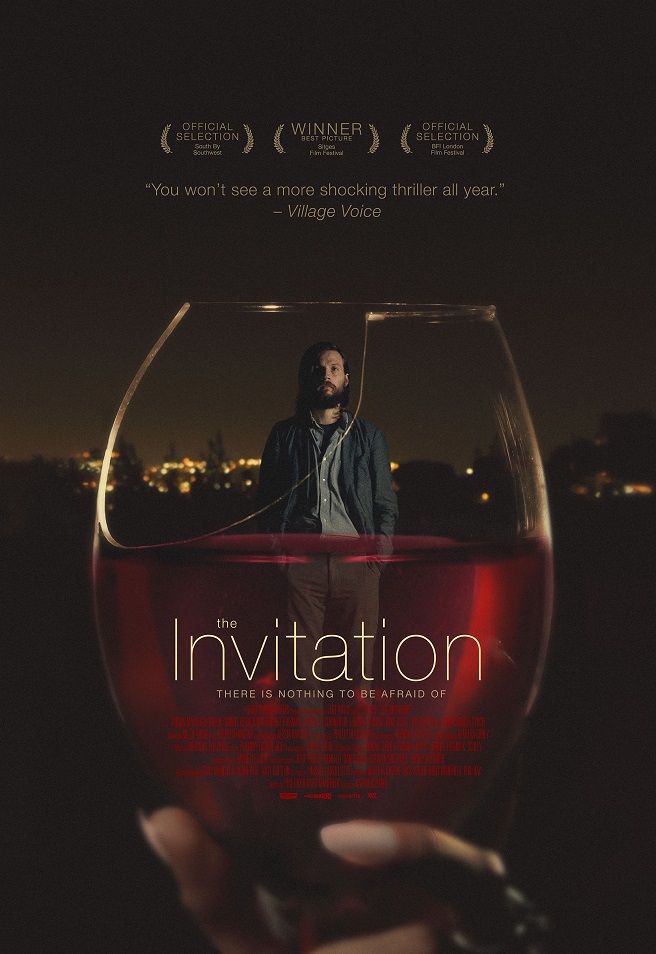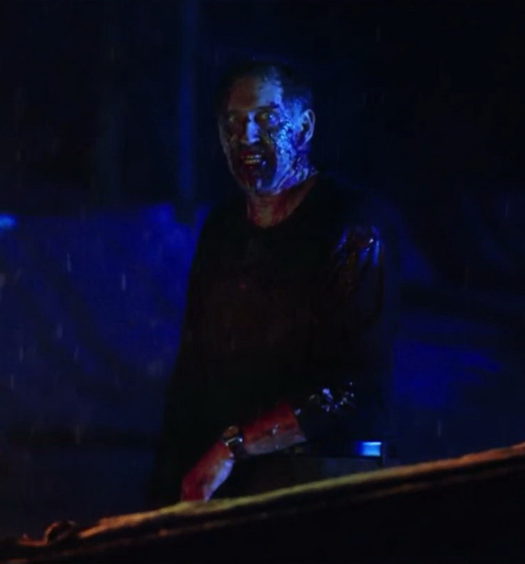Q&A: The Writers and Director of the Mind-Boggling ‘The Invitation’
Psychological horror is a sub genre that has been making an appearance for quite some time now. In this day and age where horror movies have become a constant deja vu, Karyn Kusama’s The Invitation manages to bring a breath of fresh air to the table through it’s display of amazing directing and an ominous narrative. I was recently able to sit down with director Karyn Kusama and writers Phil Hay and Matt Manfredi to see what they had to say about the film and the psychology behind it.
Phil: It’s funny in a way it is a political mission in some ways, because we wanted to make sure that, as Karyn said, I feel like we wanted to depict Los Angeles that is of today in real, and that’s our experience of it. And also just knowing that within movies in general, in some genre movies specifically..I think diverse movies are always more interesting. No matter what kind it is; it’s always more interesting, and it always benefits the movies to my opinion. So I feel like from the beginning we knew that we wanted mix of races and sexual orientations in this group of people; and some of that came in the script and some of that came in casting. It was I think both ways. Matt: Plus we didn’t want the movie to be….I think if it wasn’t the diverse cast it would have been about white people in LA. And the movie is about Los Angeles among other things. So to us this is Los Angeles. Matt: Yeah there is a grim history to the Hollywood Hills. Many bad tales that come out, and all of them are tied into this idea of dreams and trying to create or remake yourself. Karyn: People come here to remake their identity, and it felt like this was an interesting sort of domestic tale of that happening with very uncomfortable results. Phil: I think for me there is this feeling about the Hills and that it’s very precarious–seemingly. It feels like we’ve all had the experience (or at least I know I have) where I’m looking for a party in the Hills, before there was really good GPS, just getting so lost and feeling like “if I don’t come back no one is gonna find out for a while”. Phil: And questioning him from a sympathetic place too. And really–this is something I love in Logan’s performance. it’s a very difficult thing to pull off, and I really believe he does it. You believe you see the power inside that character, and you know that the movie can go in a very dark area because of him, or it can go in a very dark area around him. He’s the only one who knows what’s going on. As Matt said–we are constantly trying to push on that. Not just because it was necessary for the story, but also because we were fascinated by how Karyn evoked it. Fascinated by how the ways we can look at a character and you know become identified with him and then become alienated by him. In the same way his friends in this party desperately want to identify with him but he keeps doing alienating things. He keeps acting in a way that makes it hard for people to come close to him. And of course his whole thing is the way these other people connect with him is in a very bad way. Matt: And Will’s decision to bring Kira to the party is such a strange one with what their history is. And the same thing with David and Eden’s relationship. There are questions to answer about that before we can even write it and before we can talk to the cast about it. They were so smart and so engaged. All of them wanted to know these questions so they could play them. Phil: And it’s fun as writers to be able to also really choose to focus on everybody not just the main character and the other two most biggest characters in the movie. It was always a priority for all of us to invest all of those characters with a life of their own. So that they weren’t just playing a role in the story, but hopefully they were just people who were in the story. Phil: And I know when Karyn is approaching the movie that we had a lot of discussion about that there is got to be beauty along with all the tragedy that’s in the way the movie is made, but it was really important to us to make it about something. It had to be about something. None of us are nihilists, and we hope to ….without giving anything away… we hope there is a way to walk out of this movie with some sense of fresh air. Karyn: It always starts with the script for me, and finding my way into the material just in terms of how I feel about it when I read the script and sort of “do I see the material or not.” So certainly with my feature films I always felt really strongly about the scripts when I got started with them and just sort of found the visual language according to sort of what the script spoke to me. With television it’s a little bit different. Yeah I always start with what’s on the page. Phil: It’s hard to get the right elements, and it’s interesting because you know it really helped us because we had to bring the budget down to where it is now. And that’s the thing with independent movies. You trying to get it made, and it almost gets made in one way with one group of financiers, and they have certain requirements about what the actors are gonna be, or something that doesn’t else that doesn’t work. There are so many moments where it almost happens, and it doesn’t, and you just keep going and going. But I think where we ended up had some very nice and unintended benefits of being able to make exactly the movie that we wanted to make. Finding people and financiers who really supported that vision completely, and then being able to cast the actors who were absolutely the best of people for the part and the best actors we could find. And it seems like once we got Karyn involved, it happened pretty quickly. But it took years, and it was non stop. The Invitation is available on VOD platforms on 4/8/2016
Karyn: I think there is so much possibility in horror. I mean I would call The Invitation closer to psychological horror. But I feel like we have to work out sort of the anxieties and nightmares of our culture at any given time. And there is something about horror that opens up a lot of possibilities to do that, and this film did. 































